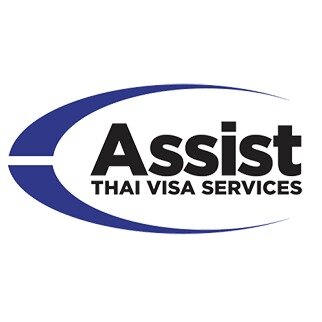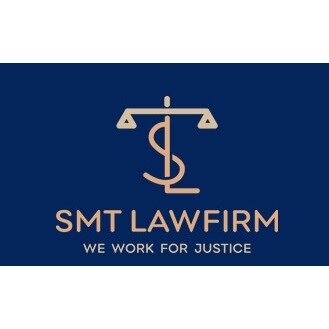Best Brokerage Lawyers in Chiang Mai
Share your needs with us, get contacted by law firms.
Free. Takes 2 min.
Free Guide to Hiring a Real Estate Lawyer
List of the best lawyers in Chiang Mai, Thailand
Legal guides written by SIAM LEGAL INTERNATIONAL:
- Defamation Laws in Thailand: Criminal Charges and Civil Suits
- The State of Thailand’s Long-Term Resident (LTR) Visa Program in 2025
- The Penalties Of Not Filing Your Income Tax Return As A Foreigner In Thailand
About Brokerage Law in Chiang Mai, Thailand
Brokerage law in Chiang Mai is an essential component of the business environment, particularly for those involved in real estate, securities, and other types of financial and asset transactions. Brokers act as intermediaries and their actions are subject to legal scrutiny to ensure fair practices, transparency, and the protection of clients’ interests. The legal framework governing brokerage in Thailand includes regulations set forth by the Thai government and industry-specific guidelines that aim to maintain order and fair play in the market.
Why You May Need a Lawyer
There are several scenarios in which you might require legal assistance in brokerage matters. These include but are not limited to:
- Disputes arising from brokerage transactions, such as non-disclosure of important information.
- Issues related to breach of contract by either the brokerage firm or the client.
- Navigating the regulatory requirements to ensure compliance with local and national laws.
- Advisory on investment opportunities and the legal ramifications of such investments.
- Disputes over brokerage fees and misappropriation of funds.
- Representation in legal proceedings that may arise from brokerage-related matters.
Local Laws Overview
Chiang Mai, like the rest of Thailand, follows a comprehensive legal framework that governs brokerage activities. Key aspects include:
- The Financial Institutions Business Act, which regulates brokers in the financial sector.
- The Securities and Exchange Act, applicable to stockbrokers and financial advisors.
- Licensing requirements for brokers, as mandated by the Securities and Exchange Commission (SEC) in Thailand.
- Consumer protection laws that ensure brokers provide services that are free from fraud and deception.
- Real estate-specific laws that govern property transactions and the role of real estate brokers.
Frequently Asked Questions
What is the role of a broker in a real estate transaction?
A broker acts as an intermediary between buyers and sellers, facilitating the transaction by providing market insights, valuation, negotiation, and finalization of legal documents.
Do brokers need to be licensed in Thailand?
Yes, brokers operating in Thailand, including Chiang Mai, are required to obtain the appropriate licenses depending on their field of operation, such as real estate or securities.
What should I do if I have a dispute with my broker?
It's advisable to first attempt resolution through open communication. If that fails, seek legal advice to understand your rights and the next steps, which may involve mediation or legal proceedings.
Are brokerage fees regulated?
While specific brokerage fees may fluctuate based on services and negotiation, there are regulatory frameworks ensuring transparency and fairness in the charging of these fees.
Can a broker represent both parties in a transaction?
Dual representation is possible but it is crucial that all parties are aware and agree to this arrangement to avoid conflicts of interest.
What are my options if a broker fails to disclose important information?
Failure to disclose material information could be a breach of contract and legality, for which you could seek redress through legal channels.
What is the difference between a broker and a dealer?
A broker facilitates deals between buyers and sellers and earns commissions, whereas a dealer buys and sells securities or assets for themselves.
Is there a legal penalty for unlicensed brokerage activity?
Yes, engaging in brokerage activities without a license can lead to significant penalties, including fines and imprisonment.
How can I verify a broker's credentials?
Brokers should provide proof of their license, which can be verified with the relevant regulatory body such as the SEC for securities brokers.
What should I consider before hiring a broker?
Consider a broker's experience, credentials, regulatory compliance status, and client testimonials before hiring them.
Additional Resources
For further guidance and assistance, you can contact or visit the following resources:
- The Securities and Exchange Commission (SEC) of Thailand for matters related to securities and financial brokerage.
- The Department of Land in Thailand for real estate broker concerns.
- The Office of the Consumer Protection Board for consumer rights related to broker services.
Next Steps
If you need legal assistance with brokerage issues in Chiang Mai, here are the recommended steps:
- Determine the specific area of brokerage where you require assistance and gather relevant documents.
- Consult with a legal professional who specializes in brokerage law to explain your situation and seek advice.
- Consider engaging a lawyer to represent you in any legal matters or negotiations.
- Remain informed about the applicable laws and regulations and ensure your compliance to avoid unnecessary legal issues.
Taking these steps can help ensure that your brokerage dealings are handled with confidence and in accordance with the law.
Lawzana helps you find the best lawyers and law firms in Chiang Mai through a curated and pre-screened list of qualified legal professionals. Our platform offers rankings and detailed profiles of attorneys and law firms, allowing you to compare based on practice areas, including Brokerage, experience, and client feedback.
Each profile includes a description of the firm's areas of practice, client reviews, team members and partners, year of establishment, spoken languages, office locations, contact information, social media presence, and any published articles or resources. Most firms on our platform speak English and are experienced in both local and international legal matters.
Get a quote from top-rated law firms in Chiang Mai, Thailand — quickly, securely, and without unnecessary hassle.
Disclaimer:
The information provided on this page is for general informational purposes only and does not constitute legal advice. While we strive to ensure the accuracy and relevance of the content, legal information may change over time, and interpretations of the law can vary. You should always consult with a qualified legal professional for advice specific to your situation.
We disclaim all liability for actions taken or not taken based on the content of this page. If you believe any information is incorrect or outdated, please contact us, and we will review and update it where appropriate.















